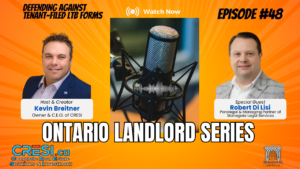The development process of pre-construction condos involves several phases, from the initial sales and marketing stage to the final occupancy by buyers. Here’s a breakdown of the typical phases:
Pre-Sales and Marketing
- Developers start by marketing the project to potential buyers before construction begins. This includes creating a sales website, brochures, and holding sales events.
- During this phase, buyers can reserve units by paying a reservation fee. This fee is usually refundable and holds a specific unit for the buyer until they decide to proceed with the purchase. Typically this is the cheapest time to purchase a unit.
Pre-Construction
- Once a sufficient number of units are reserved, the developer obtains the necessary approvals, permits, and financing to begin construction.
- The developer might make some changes to the project based on buyer feedback or market demand.
Construction
- This is the phase where the actual building of the condo complex takes place. It involves site preparation, foundation laying, structural work, and the construction of individual units.
- Regular updates are usually provided to buyers during this phase, showcasing the progress of construction.
Interim Occupancy
- As sections of the building are completed, some units might receive interim occupancy permits from local authorities. This allows buyers to move into their units even though the entire project is not yet complete.
- During this period, buyers pay an “occupancy fee” which covers the developer’s financing costs and initial operating expenses and taxes.
Final Occupancy and Title Transfer
- Once the entire building is completed and has received all necessary approvals from local authorities, a final occupancy permit is granted.
- At this point, buyers secure financing for their mortgage and make the final payment to the developer.
- Buyers are now officially owners and ownership is transferred from the developer to the individual buyers.
Registration and Closing
- This is the formal process of transferring ownership from the developer to the buyers. It involves registering each unit with the local land registry office.
- Buyers receive a title for their unit, and the mortgage they secured earlier is finalized.
Condo Corporation Setup
- The developer sets up a condominium corporation, which is responsible for managing the common areas and shared facilities of the building.
- Unit owners become members of the condo corporation and have a say in its governance through elected representatives.
Full Completion
- All construction work is finished, and all common areas and amenities are ready for use.
- The condo corporation takes over the full management and maintenance of the building.
It’s important for buyers to thoroughly research the developer’s reputation, understand the terms of the purchase agreement, and be prepared for potential delays or changes during the construction process. Each phase has its own complexities and potential challenges, so buyers should work closely with legal and real estate professionals to navigate through the process smoothly.



